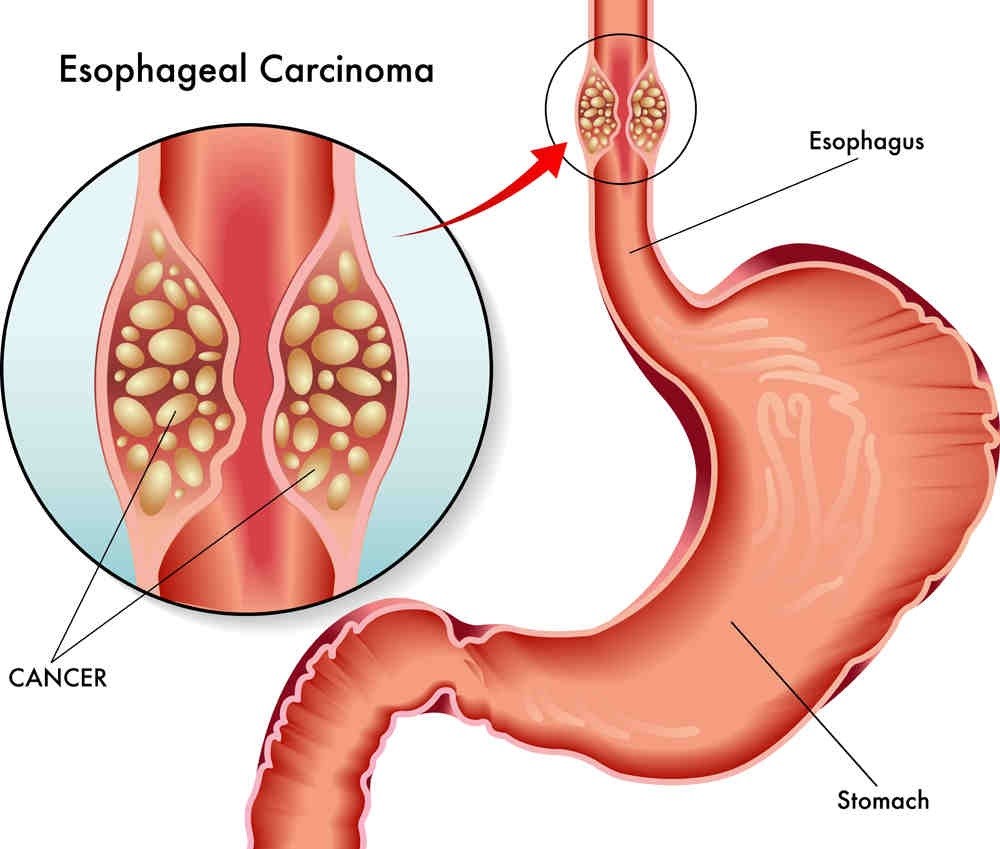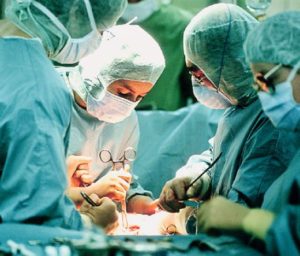Leave a Comment:
7 comments
[…] Heal Barrett’s Esophagus Conventionally and Non- Conventionally […]
ReplyHello David,
Nice to meet you. Recently I am diagnosed with Barrett’s Esophagus. Is there any nutritional supplements stopping or slowing the progression of BE to esophageal adenocarcinoma ?
Thanks a lot. Looking forward to hear from your reply soon.
Best regards,
Jacky
[…] Heal Barrett’s Esophagus Conventionally and Non-Conventionally […]
ReplyHello! Thanks for the great info!
I’ve had Barratt’s for about 10 yrs. During EGD in Dec. ’18 they found high & low grade dysplacia. I underwent an EMR (mucousal resection) April 2nd. I’m a little confused as to what they did; I originally thought is was to remove some of the dysplacia. They removed a non-dysplacic polyp. I’m thinking there was some kind of miss-communication between the two gasto-drs I’ve been working with.
I’m scheduled for a halo ablation July 18th. (I’m thinking this is the same thing as a RF ablation.
I would appreciate it if you could help me untangle some of some of the confusion I have. IE: what did the EMR accomplish? Was it necessary? Will the RFA remove high grade dysplacia? Any other comments welcome!
I’ve also been drinking a little aloe vera juice in the hopes that would help. FYI, I’ve been a vegan for about 10 years. I eat a little herring or sardines every day in hopes of getting enough Omega 3’s. Plus I eat flax & other seeds & nuts every day. I also eat turmeric with every meal.
Please let me know if you have any short-term advice.
Thanks again!!
George
Hello George,
I am sorry to read of your BE issues but my read of everything is that you and your doctors are working hard to make sure your BE does not progress to esophageal cancer. I will try to answer your questions below.
“I underwent an EMR (mucousal resection) April 2nd. I’m a little confused as to what they did; I originally thought is was to remove some of the dysplacia. They removed a non-dysplacic polyp. I’m thinking there was some kind of miss-communication between the two gasto-drs I’ve been working with.”
My understanding of an EMR, see the article below, is to remove pre-cancerous tumors. My understanding is that a polyp is a pre-cancerous growth. I think that the vocabulary used by M.D.s is very confusing. Technically polyps, BE, other growths are considered “pre-cancer” because they increase the risk of becoming cancerous.
I’m not sure what your M.D. said to you about the purpose of EMR but removing the polyp will reduce your risk of developing EC. This is good.
“I’m scheduled for a halo ablation July 18th. (I’m thinking this is the same thing as a RF ablation.”
You are correct. HALO is a type of ablation.
“IE: what did the EMR accomplish? Was it necessary? Will the RFA remove high grade dysplacia?”
To confirm, yes, removing the polyp in your esophagus reduced your risk of EC. Just like removing polyps in one’s colon reduces the risk of colorectal cancer.
Also, yes, radio-frequency ablation will reduce your risk of your BE becoming EC. Two different procedures for two different types of growths that increase the risk of EC.
For the record, the risk of BE becoming EC is small (.5 to 1.0 percent). But since esophageal cancer is difficult to cure, reducing your risk of EC is useful.
Lastly, your non-conventional therapies such as Aloe Vera juice, omega-3 fatty acids, flax, nuts and turmeric are also excellent therapies to reduce your risk of esophageal cancer.
I will encourage you to exercise regularly and quit tobacco if you haven’t already. Reduce any alcohol consumption as well. While I’m at it, I will encourage you to eat more fruits and veggies and reduce your consumption of animal fat.
Let me know if you have any other questions, George. Good luck.
Hang in there,
David Emerson
ReplyHi David, I have been battling with stomach ulcers and acid reflux for 8 years. Had many tests done to rule out Hernias, H Pylori bacteria etc etc. Went from being told I had high stomach acid to low stomach acid and still nothing. I eat very health. Don’t drink, never smoked. I run 5kms a day and believe I am generally in good health. I never take medication as I believe we can heal ourselves but I need all the help I can get….I am worried my throat is at the stage it could become cancerous and would like to fix it please help me! Regards Rose.
ReplyHi Rose-
I am sorry to read of your acid reflux issues. First and foremost, I am convinced that your diet and lifestyle benefit your health in many different ways. All good.
With respect to your AR, I will reiterate the therapies discussed in the blog post that you came in on, curcumin and omega-3 fatty acids and again, as the post discussed, radiofrequency ablation if your acid reflux has progressed to Barrett’s Esophagus.
This is a bit backwards, but you can undergo an endoscopy (see the article linked below).
When Should Endoscopy Be Done in the Patient With Reflux?
“Historically, subspecialists have often depended on objective diagnostic tests in the initial management of disease processes (ie, gastroenterologists would use a test such as endoscopy to diagnose gastroesophageal reflux disease [GERD]), whereas primary care physicians (PCPs) have often relied on clinical findings or the results of trials of empirical therapy to make a disease diagnosis. This disparity in initial clinical approach in GERD management between specialist gastroenterologists and PCPs is now especially questionable, given that community-based studies have shown that 40% to 60% of patients with reflux symptoms have no objective endoscopic findings of GERD.[1] Thus, endoscopy only has a sensitivity of approximately 50% for diagnosing GERD. It is my opinion that this relatively modest (at best) sensitivity for endoscopy as a diagnostic test for GERD is underappreciated by many PCPs referring patients with suspected GERD for this procedure as a diagnostic tool. Furthermore, the charges for upper gastrointestinal tract endoscopy and the additional hidden costs (lost productivity, wages, etc, for the patient on the day of the procedure), result in a substantial societal and healthcare system burden financially when endoscopy is used in this setting as a routine diagnostic test. Thus, referring every patient with reflux symptoms for endoscopy is not justifiable, given the substantial cost coupled with the poor sensitivity…”
Reply


